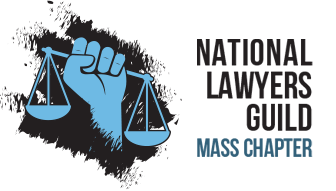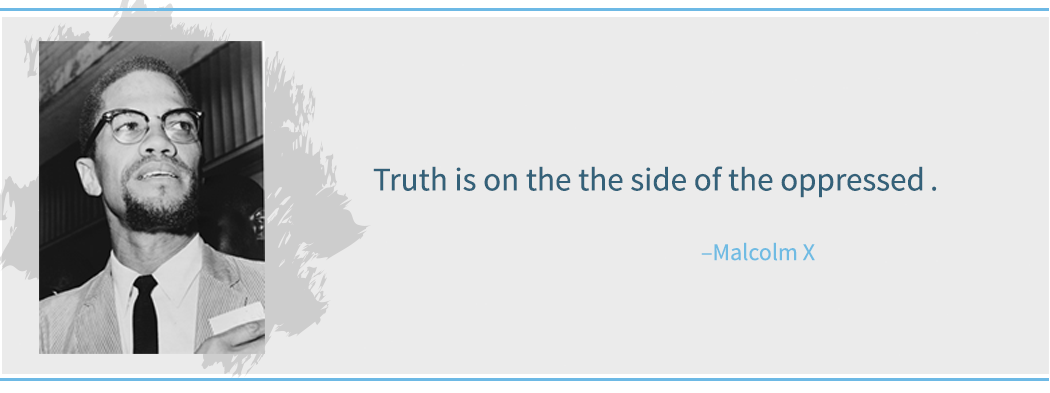
Pursuing Systemic Change through Impact Litigation
What We Do
Formed in spring 2011 to conduct impact litigation, the Litigation Committee is comprised of attorneys, legal workers, and law students. Striving to protect people from policies and practices that perpetuate social, racial, and economic injustice, we bring civil lawsuits against large institutions such as government agencies, law enforcement, banks, financial institutions, and corporations that cause harm. We use lawsuits to expose these entities’ actions, educate the public about how they operate, and support political movements to halt their repressive and predatory behavior.
Our Process
We meet monthly to discuss requests for possible litigation. Requests come from community organizers, people in prison, and NLG-Mass Chapter members. In each case, an NLG-Mass Chapter attorney takes the lead role, while other members (lawyers, law students, and legal and non-legal workers) contribute whatever they can based upon their interest, availability, and workload. The Litigation Committee allows us to use our legal skills in direct support of the struggle for economic, social, and racial justice.
Why We Do It
The Litigation Committee’s impact complements crucial pro bono representation of political demonstrators in cases handled by the Mass Defense Committee. This collaborative work is essential to the Litigation Committee as it marshals the collective talents of NLG-Mass Chapter members with varied legal and non-legal organizational experience.
Since its inception, the Litigation Committee has successfully pursued cases promoting systemic change.
Examples of cases the committee has taken on
Lack of Treatment for People in Prison with Hepatitis C
A Victory! In spring 2018, the NLG-Mass Chapter and Prisoners’ Legal Services reached a settlement in their joint lawsuit that provides for dramatic improvements in the health care of all prisoners in Massachusetts.
The settlement includes Hepatitis C testing for all incarcerated people (except those who opt out), monitoring of those in the beginning stages of the disease, timely treatment if and when the disease progresses, and the end to various non-medical disqualifications from treatment (e.g., having a disciplinary infraction). These had previously excluded many ill people from necessary, sometimes life-saving treatment.
We believe ours was the first class action lawsuit to address this deplorable situation and the first to conclude with an agreement for treatment that satisfies the necessary standard of care. Encouraged by our victory, dozens of other lawsuits have been filed. We hope this settlement will help resolve other cases and improve health care for incarcerated people nationally.
Background
In 2014, the NLG-Mass Chapter’s Litigation Committee started investigating the treatment of Massachusetts prisoners infected with the potentially deadly disease of Hepatitis C. According to 2015 statistics provided by the Massachusetts Department of Correction (DOC), more than 1,500 people in their custody were infected with the disease. Only a handful was being treated. There was no regular procedure for testing people for Hep C and treatment was rationed, creating a long waiting list. To make matters worse, the DOC had contracted out medical services to a private company that had limited treatment slots available.
Working with Prisoners’ Legal Services, we filed a class action lawsuit in June 2016 against DOC and the medical provider, alleging that their failure to provide proper medical care to incarcerated people violated the Eighth Amendment prohibition against cruel and unusual punishment. We argued this was especially true considering the availability of new, highly effective drugs with a cure rate of over 90 percent.
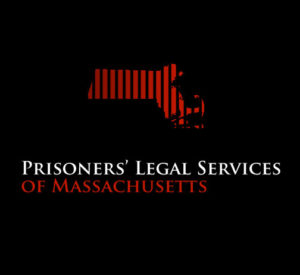
Eviction Protection
Working with City Life/Vida Urbana, a local tenant-organizing group, the NLG-Mass Chapter represented two tenants against eviction in a building foreclosed on by Fannie Mae. Through this litigation, we got the eviction actions dismissed, established that Massachussets’ strong state Tenant Protection Law requiring just cause to evict a tenant from a foreclosed-upon building was not preempted by federal law, and made it possible for the tenants to live rent-free in their apartments for three and a half years. The court, however, ruled against our request to impose a $5,000 fine on Fannie Mae.
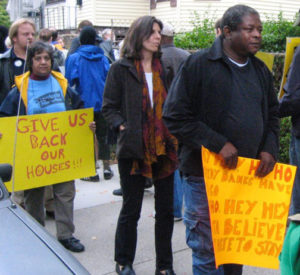
Photo Credit: Andrei Joseph
Illegal Fees Charged to People in Prison for Medical Treatment
Acting on complaints from people who are incarcerated, and working with the non-profit agency Prisoners’ Legal Services (PLS), the NLG-Mass Chapter, and PLS filed a case on October 6, 2011, to challenge the Essex County Sheriff’s Department’s policy of charging people a $30 medical processing fee, a $5 fee for sick calls or doctor and dentist calls, and medication fees of varying amounts. We contended that these fees violated Massachusetts statutory law as well as the substantive and procedural due process clauses of the United States and Massachusetts Constitutions.
The state court accepted this case as a class action. The Sheriff’s Department agreed to eliminate fees for medical care, remove all unpaid medical processing fees or any other medical fees on imprisoned people’s balance sheets, and establish a $274,102 fund for the benefit of the class. From this fund, each class member has received the amount of fees they had been unfairly forced to pay.
Shackling Pregnant People in Prison
Working in a coalition of organizations, including the Prison Birth Project, Black & Pink, NARAL, and the ACLU of Massachusetts, the NLG-Mass Chapter researched possible plaintiffs for a class action lawsuit to stop the practice of shackling pregnant people. We organized and led a well-attended public forum at Suffolk Law School while helping to organize letter-writing and lobbying campaigns demanding that the governor and the state legislature ban the practice.
A Victory! As a result, in early February 2014, Governor Deval Patrick announced that he would end the practice of shackling people in labor. The following month, the Legislature joined him by passing a law requiring minimum standards of medical care for pregnant people in jail and prison. Massachusetts became the nineteenth state to prohibit childbirth in chains.
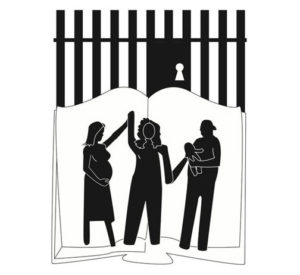
Warrantless House Searches Following the Boston Marathon Bombing
Working with the Watertown chapter of United for Justice with Peace (UJP), the NLG-Mass Chapter canvassed the town of Watertown, which had been locked down and occupied by more than 5,000 law enforcement personnel and military troops during the search for the Boston Marathon bombing suspects.
Through this canvassing, we identified people whose homes had been searched without their consent, who had been ordered out of their homes or prevented from entering their homes by law enforcement without probable cause, or who had otherwise been abused by law enforcement during this period. Our canvassing resulted in community forums in Watertown, Boston, and Roxbury to discuss the overwhelming police intrusion into the lives of peaceful, law-abiding citizens.
On behalf of concerned residents of Watertown, the NLG-Mass Chapter sent requests for documents related to the lockdown to town council members, the mayor of Boston, the Watertown and Boston Police Departments, the U.S. Attorney’s office, and Governor Patrick. Although no concrete litigation or reforms in police procedure were developed, these actions put the government on notice that its actions were not acceptable to everyone and that we would carefully monitor their future actions.
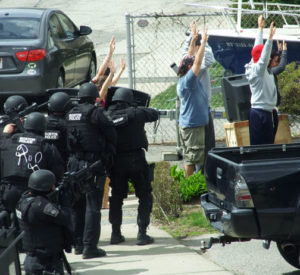
Photo Credit: Gabriel Camacho
Passport Applications for Unmarried Single Parents
Massachusetts law states that when a child is born to unmarried parents, the mother automatically has sole physical and legal custody. Yet the U.S. Passport Offices in Massachusetts have refused to issue passports for children born to unmarried parents when the mother applies for one, unless the mother can produce either a court order awarding her sole custody or a signature from the father of the child.
As many of these children are born to mothers who are undocumented immigrants, who have left abusive partners, or who simply have had no contact with the fathers for some time, this policy unfairly and illegally prevents these women and their children from traveling outside of the country. Working with the Greater Boston Legal Services and the Volunteer Lawyers Project, the NLG-Mass Chapter is in the process of identifying clients willing to act as plaintiffs in a planned lawsuit seeking injunctive and declaratory relief to halt this discriminatory practice.
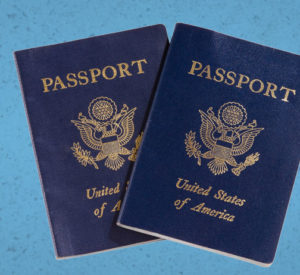
Public Records Litigation Concerning the Boston Regional Intelligence Center
One of the two fusion centers in Massachusetts, the Boston Regional Intelligence Center (BRIC) is largely funded by the Department of Homeland Security. Its stated purpose is to collect, process, and share information among a wide variety of state, local, and federal law enforcement agencies concerning supposed “terrorist” and/or “gang” activities.
Since their creation after 9/11, these fusion centers have expanded their surveillance and information gathering to include political, environmental, and animal rights activists, as well as anyone with a real or suspected connection to Muslim or Arab organizations. A number of activists who had been questioned by officers connected to BRIC asked the NLG-Mass Chapter to help them find out what information BRIC had collected on them. The NLG-Mass Chapter filed numerous public records requests that resulted in little response until we filed a lawsuit on behalf of four pro-Palestinian activists.
Following the lawsuit, the Boston Police Department (BPD) released a flood of documents. Representatives from the NLG-Mass Chapter, The Constitution Project, and the ACLU of Massachusetts were invited to meet with BRIC. At that meeting, BRIC officials gave us information about the preferred procedure to file a grievance to correct information and went on to admit that the surveillance of activists had been a mistake. They claimed that all of the files on activists had been deleted or destroyed and that such surveillance would not take place again, or at least not on a routine basis.
To date, in an effort to hold the BPD and BRIC to their word, the Litigation Committee has reached out to impacted communities and activists, submitted new record requests to BRIC on behalf of Occupy Boston and Muslim activists, and in 2016 filed a new lawsuit to challenge BRIC’s practice of not releasing documents and of imposing of large fees for released documents.


